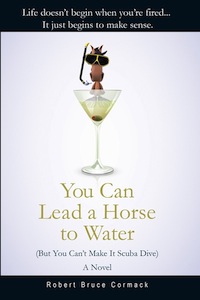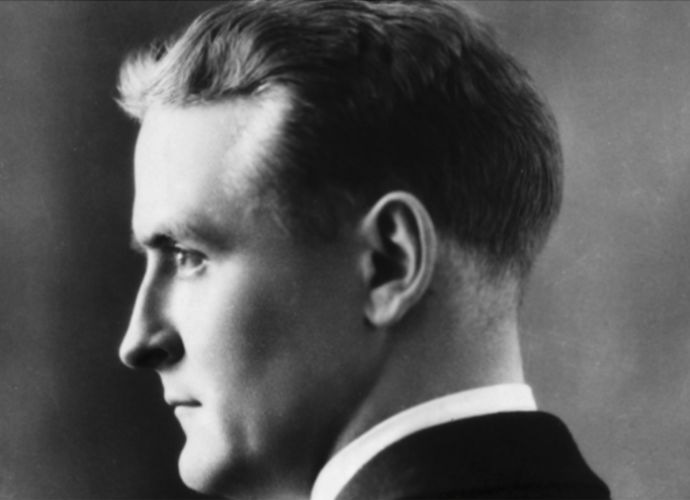The Visitor.
A short story by Robert Cormack.

“Acting isn’t important in the scheme of things. Plumbing is.” Spencer Tracy
My wife wants to know about my grandfather, a printer by trade, then a Shakespearean actor. I have to admit, nobody’s asked about him in a long time. Even when I was growing up, he was already an old man, living down the hall in my parents’ house, his room smelling of cigarettes.
He only gave up smoking when he set his room on fire. He tried to put it out with a glass of brandy. He was ninety-three at the time. When my wife asks now why he quit smoking so late in life, I say, “He didn’t want to push his luck.” He lived till he was ninety-nine.
He also played Alfred P. Doolittle, the smooth-talking garbage man and drunk in My Fair Lady.
Another actor who lived a long life on the stage was Stanley Holloway, most notably as Alfred P. Doolittle, the smooth-talking dust collector in My Fair Lady. I know this because my grandfather was a fan and had many of Holloway’s recordings.
“I never saw My Fair Lady,” my wife says, sipping her tea while we continue discussing my grandfather, former printer and Shakespearean actor. I tell her how my grandfather emigrated from England to Canada back in 1904. He arrived in Toronto at Union Station the day after The Great Fire. You’d think that would’ve put him off smoking, but he was a career smoker.
Even after retiring to our house, Grandad either chain-smoked or polished apples, sometimes both. Our house was surrounded by an orchard. My parents had this crazy idea (remember, this was the fifties) that they could sell these apples. Nothing came of it, maybe because Grandad smoked more than he polished.
He even had a pince-nez hanging down from a plaid lanyard and spoke with a proper English accent.
One day, while my grandfather was polishing away on the front lawn, a gray-haired gentleman with a red face showed up in a cab. He was wearing a black cape and grey fedora. He even had a pince-nez hanging down from a plaid lanyard.
As soon as he got out of the cab, his voice seemed to boom over the apple trees as he greeted my grandfather. I was a small child at the time, so I was ready to believe anything, the first being that this man with the cape and the booming voice must be an actor (possibly Stanley Holloway).
“Leonard,” he said, apparently concerned that my grandfather was polishing apples on the front lawn. “Has it come to this, old chap?” They shook hands and then he looked at me standing there in my usual state of bewilderment.
“And who might you be?” he asked, putting his pince-nez up to his eye for a closer look. I told him I was the grandson. He gave my head the briefest of pats, then stood with his thumbs in his vest.
“Sit, sit,” my grandfather said, returning to his apple-polishing chair, while this gentleman sat on a crate. He kept rolling a big ruby ring around on his finger. I kept staring at the ring. I think that’s why I’m so easily hypnotized.
“Who was he?” my wife asks.
“Charles something,” I said. “Never got a last name.”
“How did he know your grandfather?”
“I guess they worked together at some point.”
“So what did they talk about?”
‘Why did you think I was Stanley Holloway, dear boy? Is this a running gag, Leonard? Something you cook up for old thespians visiting?’”
“Acting, mostly. Who was still performing. Who was still alive, that sort of thing. Charles did most of the talking. I really thought he was Stanley Holloway. I even asked him at one point.”
“What did he say?” my wife asks.
“Certainly not,” I say, with an elevated British accent, which I can’t do worth a shit. “He even seemed a bit offended. I don’t know why. Anyway, he went on mentioning mutual friends, most of them dead, then he looks at me and says, ‘Why did you think I was Stanley Holloway, dear boy? Is this a running gag, Leonard? Something you cook up for old thespians visiting?’”
“Not at all,” my grandfather said. “He likes me reciting The Lion and Albert to him. If I do it often enough, I get an extra glass of brandy.”
Charles showed his big yellow teeth at that, telling Grandad it’s a fine poem. Then he says, “Why don’t we have a crack at it now for the child? We’ve worked on lawns before. Are you with me, old chap?”
Grandad got up at that point, putting out his cigarette, then stood next to Charles. Both men had their thumbs in their vests, rocking back and forth on their heels and toes, Shakespeareans to the core.
Grandad started reciting everything up to where Mr. Ramsbottom says, “Mother! Yon lions ‘et Albert.” Then Charles throws his cape over his head like Ma Ramsbottom’s scarf, and says in a screeching voice, “Meh, I’m vexed!”
“Sounds like they were both in their element,” my wife says.
“They were,” I reply, “especially when Pa Ramsbottom asks the zoo manager what he usually pays for an eaten kid.”
“They end up going to the police and police chief figures no one’s to blame. He tells them he hopes they’ll have other children, and Ma says, ‘Not if it’s just to feed lions.”
“For an eaten child?” my wife asks.
“Well, there’s a punchline,” I say. “They end up going to the police and police chief figures no one’s to blame. He tells them he hopes they’ll have other children, and Ma says, ‘Not if it’s just to feed lions.”
“Cute,” my wife says, although I think she’s being sarcastic. Any time she says “cute,” it’s usually a signal to run for the hills.
“It was funny when Stanley Holloway did it,” I say. “Grandad had a live recording. Everyone’s laughing like crazy.”
“I thought you said your grandad recited it to you?”
“He did. Every Christmas. It was one of our traditions.”
“So, what was the recording for?”
“I guess he thought it would serve as backup if he had laryngitis.”
“So what did your grandad and Charles do after that?”
“Nothing really,” I say. “They talked for about an hour. Then Charles jumps up and says, ‘It’s been wonderful seeing you again, old chap,’ then jumps in the cab—which had been waiting this whole time—and sods off just like that.”
“Pretty much. He threw the cape over his shoulder getting into the cab. I thought that was theatrical.”
“That’s it?” my wife says. “He just sods off?”
“Pretty much. He threw the cape over his shoulder and shouts ‘Onward to Dunsinane!’ I thought that was theatrical.”
“Did your grandfather ever hear from him again?”
“My mother found some letters after we put Grandad in a home. They appeared to be from Charles.”
“You put your grandfather in a home?”
“We couldn’t care for him anymore. He was ninety-nine. Actually, someone at the home thought Grandad was a hundred. They had this big ceremony and Grandad was asked to recite The Lion and Albert. He only got halfway through and forgot his lines.”
“You said your mother found letters from Charles.”
“That’s the weird part,” I say. “We thought he’d returned to England. That’s what he told Grandad, anyway. But they were postmarked here in Canada. He was actually in a home himself the whole time.”
“The cape and the pince-nez was just an act?”
My mother found a program, with Charles as Shylock in The Merchant of Venice. It was dated nineteen fifty-four, the year of my birth.
“They were actors, honey,” I tell her, feeling a bit stupid saying it. My grandfather performed in community theatre. He did that after he retired from his printing job. I don’t know about Charles. My mother found a program, with Charles as Shylock in The Merchant of Venice. It was dated nineteen fifty-four, the year of my birth. He was wearing heavy make-up and looked evil as hell. At the bottom, it said: “Performing on The Brighton Small Stage. Pay what you can.” No idea when he emigrated to Canada.
My wife gets up at this point and goes to the kitchen. I hear her turn on the tap, pouring more water into the kettle. Then she comes back again, sitting down, curling her feet up under her. “I think Charles was a big poser,” she says. “Making out like he was still acting.”
“I guess it’s what actors do.”
“That big ruby ring was probably fake, too.”
“Probably,” I say. “My mother found Grandad’s old trunk in the closet. It still had all his make-up and wigs. There were a few pieces of costume jewellery. No ruby rings or anything. Just a metal crucifix, an amulet, a few programs. Nothing really worth keeping. Except his Stanley Holloway albums.”
“Do you still have them?”
“Somewhere. I know I’ve got The Lion and Albert.”
“Play it for me.”
She comes back as Holloway starts “There’s a famous seaside place called Blackpool…”
I have to go find the album. The cover is old, faded, Holloway’s face on the front, doing different expressions. I put it on the record player while my wife gets the tea. She comes back as Holloway starts “There’s a famous seaside place called Blackpool…”
The album’s full of scratches, but my wife sits and listens.
“I don’t get what all the fuss is about,” she says, being overly analytical. She’s an analyst. They do that on a regular basis.
“Wait for the end,” I say.
She waits, frowning, until Holloway says in Ma Ramsbottom’s voice “To feed ruddy lions? Not me!” The scratches carry on until I lift the stylus.
“I guess it’s funny,” my wife says. “Maybe it’s too scratched up.”
“Maybe.”
“You liked your grandfather doing it, though?”
“I did.”
“That’s good,” she says, picking up the remote, then putting it down again. “I still don’t get why Charles was in such a rush. They could’ve kept each other company. It was just stupid pride on Charles’s part.”
“I guess it was.”
We sit there for awhile, I don’t know how long. My wife finally gets up and says she’s making dinner. As she passes the turntable, she looks at the album jacket. She picks it up, turns it over, then puts it down again. I tell her Charles died a year after he came to visit. My parents saw it in the In Memoriams. There was no funeral. Just a simple cremation. No family to speak of.
“They could’ve kept each other company,” she says. “That’s all I’m saying. Instead, he rushes off. Stupid pride.”
“Let’s not talk about Charlies anymore,” my wife says.
She goes to the kitchen, putting something in the oven, then she’s back with a fork in her hand.
“They could’ve kept each other company,” she says. “That’s all I’m saying. Instead, he rushes off. Stupid pride.”
She stares at me, then goes back to stir the vegetables. While she does that, I’m thinking of Charles and my grandfather, two old Shakespeareans, standing on the lawn, performing for their last audience, a little kid who thinks everyone’s Stanley Holloway.
Holloway died at the age of ninety-one, by the way, in the Nightingale nursing home, Littlehampton, Sussex. My grandfather outlived him by eight years. I guess it didn’t matter in the end.
You die when you die, fake or fool, famous actor or apple polisher.
That’s just the way it is.
Robert Cormack is a satirist, novelist, and former advertising copywriter. His first novel “You Can Lead a Horse to Water (But You Can’t Make It Scuba Dive)” is available online and at most major bookstores. Check out Robert’s other articles and stories (absolutely free) at robertcormack.net

in Café beBee
Articles from Robert Cormack
View blog
Or just as cheap—I haven't decided yet. · “I don’t know which is more discouraging, literature or ch ...

This world is getting very stupid and we might die wondering if this was the plan. · “Life is like a ...

A year later, he earned 20 times that. · “No decent career was ever founded on a public.” F. Scott F ...
Related professionals
You may be interested in these jobs
-
information systems manager
Found in: Talent CA 2 C2 - 5 days ago
Glen Traffic Solutions Inc. Richmond, CanadaEducation: · Expérience: · Education · Bachelor's degree · Tasks · Plan and control budget and expenditures · Establish and implement policies and procedures for information systems · Authorize the development of specifications for products or services · Meet with clients to di ...
-

Chef d'équipe Service
Found in: beBee S2 CA - 2 weeks ago
La Cage Brasserie Sportive St-Laurent - Sphèretech Saint-Laurent, Canada Full timeOn va aller droit au but : on te veut dans l'équipe. · Joins-toi à nous pour faire vivre l'ambiance Cage à nos invités et promouvoir le plaisir en travaillant · On t'offre :Salaire compétitif · Horaire adapté à ton rythme de vie · Programme de référencement payant · Bourses d'ét ...
-
administrative assistant
Found in: Talent CA 2 C2 - 1 week ago
ABS Collision Inc. Brampton, CanadaEducation: Secondary (high) school graduation certificate · Experience: 1 to less than 7 months · Tasks · Arrange and co-ordinate seminars, conferences, etc. · Train other workers · Train, direct and motivate staff · Record and prepare minutes of meetings, seminars and conference ...



Comments
Robert Cormack
2 years ago #6
Quite possibly, Fay. We form a road of experiences, and the road goes on, possibly high or low.
Robert Cormack
2 years ago #5
All real, Ken. My grandfather lived with us until he was ninety-eight, dying the following year in an old age home. He'd been a printer until his late sixties, then performed in Shakespearean plays, even earning an award (I still have it). The other actor came to visit one day, and was quite the character. I remember he kept the cab there the whole time. Strange what one remembers at this stage of our lives.
Fay Vietmeier
2 years ago #4
@Robert Cormack
Enjoyed my visit here
You die when you die, fake or fool, famous actor or apple polisher.
I am made to wonder if the way we live .. determines the way we die .. determines our destination?
Ken Boddie
2 years ago #3
Interesting testament to the letting go of pride for the sake of companionship, Rob. Is this a complete work of fiction or are any of the characters real? Either way, a great tale.
Robert Cormack
2 years ago #2
Seemed to be.
Pascal Derrien
2 years ago #1
Some character alright :)